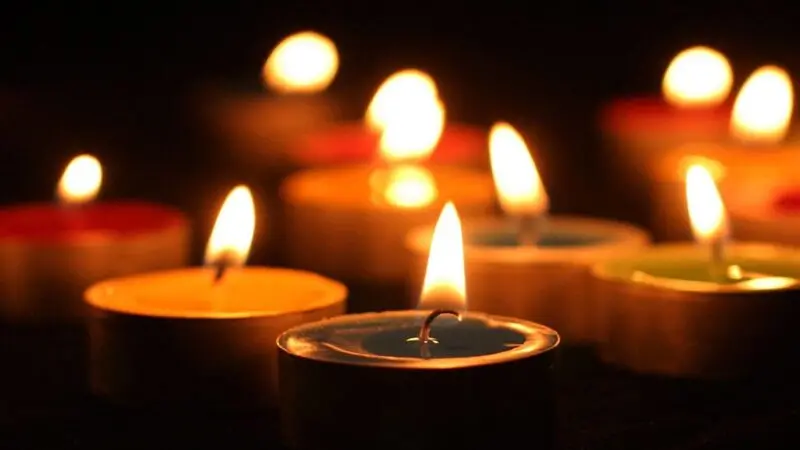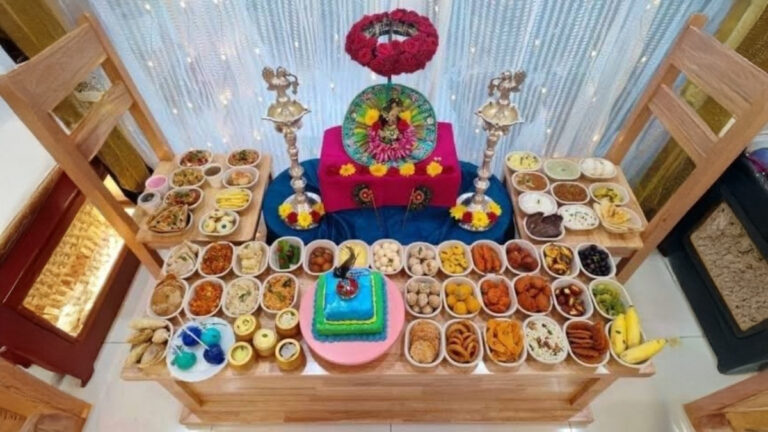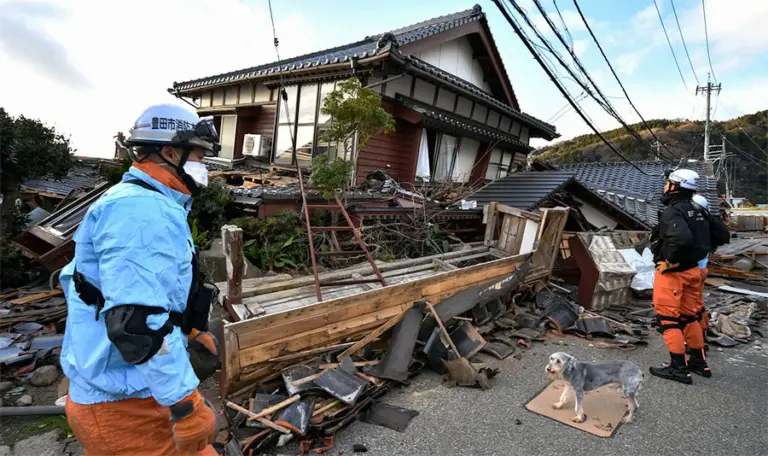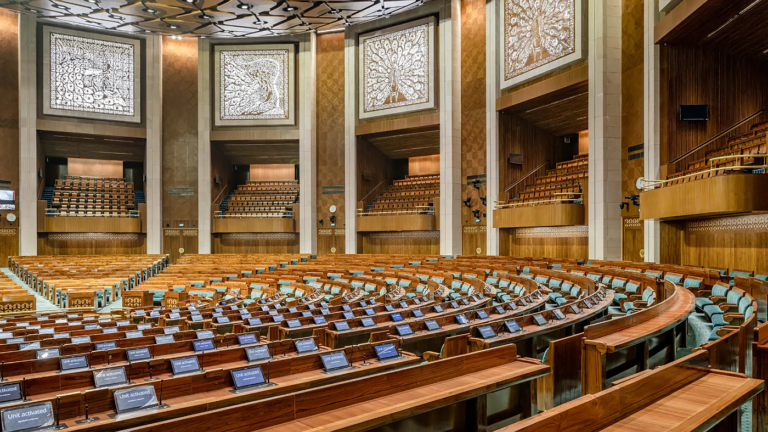All Souls’ Day, observed on November 2nd in the Roman Catholic tradition, is a day dedicated to remembering and praying for the souls of the deceased. It is a solemn occasion when people honor and commemorate their loved ones who have passed away. This essay will explore the history and significance of All Souls’ Day, the customs and rituals associated with it, the global variations in observance, and the enduring importance of remembering the departed.
All Souls’ Day, also known as the Commemoration of All the Faithful Departed, is a Christian observance that follows All Saints’ Day, celebrated on November 1st. While All Saints’ Day is dedicated to honoring the known and recognized saints, All Souls’ Day is a day set aside to remember and pray for all the departed souls, especially those who may still be in purgatory. It is a time when Christians, particularly in the Roman Catholic tradition, reflect on the souls of the deceased and seek to ease their passage into the afterlife.
All Souls’ Day is a day of solemnity and prayer, providing an opportunity for believers to remember their departed loved ones, offer prayers for their souls, and reflect on the impermanence of life.
The History and Origin of All Souls’ Day
The history of All Souls’ Day can be traced back to the early Christian traditions. While the specific origin of the observance is not well-documented, it has evolved over time into the significant religious occasion it is today.
Early Christian Practices
In the early Christian church, there was a custom of praying for the deceased. This practice was based on the belief in the resurrection of the dead and the importance of prayer to assist the departed souls in their journey to eternal life.
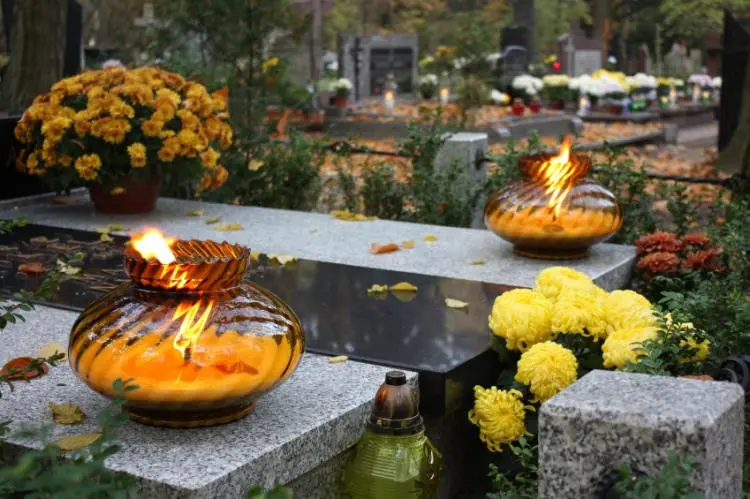
Monastic Influence
Monasteries played a pivotal role in the development of All Souls’ Day. Monks would pray and offer Mass for the deceased, seeking to alleviate their suffering in purgatory. Over time, this practice became more widely adopted by the Christian community.
Pope Boniface IV and All Saints’ Day
The predecessor to All Souls’ Day is often considered to be All Saints’ Day, which was initially celebrated in the 7th century. Pope Boniface IV consecrated the Pantheon in Rome as a church dedicated to the Virgin Mary and all the martyrs. This occurred on May 13, 609 AD, and the date eventually evolved into All Saints’ Day.
Pope Gregory III and Expansion of Observance
Pope Gregory III (731–741) is credited with expanding the observance of All Saints’ Day to include a day for the departed faithful. He moved the feast to November 1st, following All Saints’ Day, creating the sequence of All Saints’ Day on November 1st and All Souls’ Day on November 2nd. This arrangement allowed the church to celebrate the saints before commemorating the departed souls.
The choice of November 2nd as All Souls’ Day may have been influenced by the Celtic festival of Samhain, which marked the end of the harvest season and was a time when the boundary between the living and the dead was believed to be thinner.
The Significance of All Souls’ Day
All Souls’ Day holds great significance within the Christian faith and for believers worldwide. It serves several important purposes:
1. Remembering the Departed on All Souls Day
All Souls Day provides a dedicated time to remember and honor the deceased, including family members, friends, and others who have passed away.
2. Prayer for the Souls in Purgatory
Catholic doctrine teaches the existence of purgatory, a temporary state of purification for those who have died in a state of grace but still need purification before entering heaven. All Souls Day is a day for believers to offer prayers and Masses to help the souls in purgatory and shorten their time of purification.
3. Reflection on Mortality
The observance of All Souls’ Day encourages believers to reflect on the transient nature of life and the importance of spiritual preparation for the afterlife.
4. Communion of Saints
It reinforces the concept of the “communion of saints,” which is the belief in the interconnectedness of the living, the deceased, and the saints in heaven. It underscores the idea that Christians are all part of one spiritual family.
Customs and Rituals Associated with All Souls’ Day
All Souls Day is marked by a variety of customs and rituals, which may differ by region and denomination. However, some common practices include:
1. Visiting Cemeteries on All Souls Day
One of the most widespread traditions is visiting the graves of loved ones on All Souls’ Day. Families and individuals go to cemeteries to clean and decorate the graves with flowers, candles, and wreaths. This act of remembrance is a sign of respect and love for the departed.
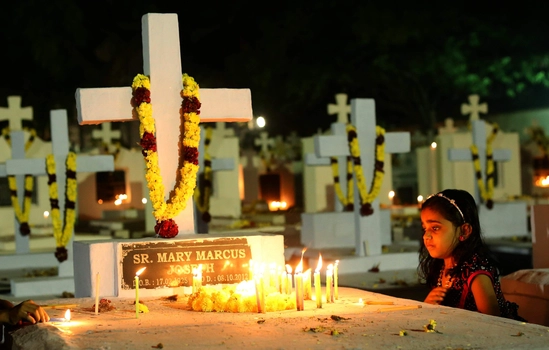
2. Lighting Candles
Candles hold symbolic significance, representing the light of Christ and the hope of eternal life. Lighting candles at gravesites or in churches is a common practice during All Souls’ Day.
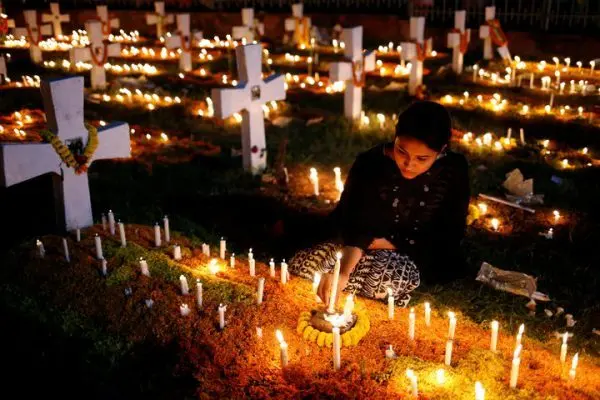
3. Attending Church Services
Many Christians attend church services on All Souls’ Day. Special Masses are offered for the deceased, and prayers are said to seek God’s mercy and forgiveness for their souls.
4. Offering Food and Alms and All Souls Day
In some regions, it is customary to offer food, alms, and other acts of charity in memory of the deceased. These offerings are seen as acts of love and kindness toward the departed.
5. Reading Names of the Departed
During church services, the names of the deceased are often read aloud, allowing the congregation to remember and pray for their souls.
6. Preparing Special Foods
In some cultures, families prepare special dishes or meals associated with All Souls’ Day. These foods may be shared with family and friends as a way to commemorate the departed.
7. Singing Hymns and Chants
Singing hymns and chants with themes related to the afterlife and hope for the departed is a common practice during church services.
8. Organizing Processions
In certain regions, processions are organized on All Souls’ Day, where individuals walk to cemeteries carrying lit candles or lanterns. These processions are often accompanied by prayers and hymns.
Global Variations in Observance
While All Souls’ Day is primarily associated with the Roman Catholic Church, similar observances can be found in various Christian denominations and cultures around the world. Some of these variations include:
Dia de los Muertos (Day of the Dead) on All Souls Day
In Mexico and other Latin American countries, Dia de los Muertos is a popular celebration that occurs around the same time as All Souls’ Day. It is a colorful and festive occasion when people honor the deceased through offerings, altars, and parades. It combines indigenous traditions with Catholic elements and has become widely recognized beyond its place of origin.
Obon Festival (Japan)
The Obon Festival in Japan is a Buddhist celebration to honor deceased ancestors. Families come together to visit and clean graves, light lanterns, and perform traditional dances. The festival usually takes place in July or August, depending on the region.
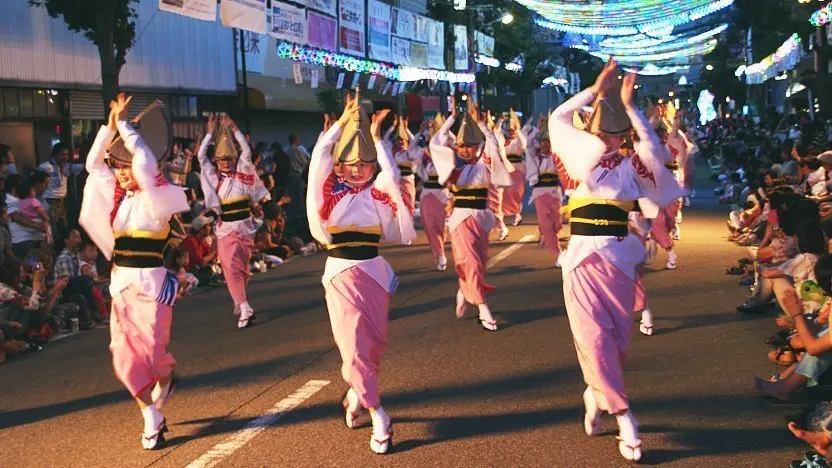
**Chuseok (South Korea) and Qingming
Chuseok in South Korea and Qingming Festival in China are cultural observances where families visit the graves of their ancestors, make offerings of food, and pay respects to the deceased. These traditions share similarities with All Souls’ Day in terms of honoring the departed.
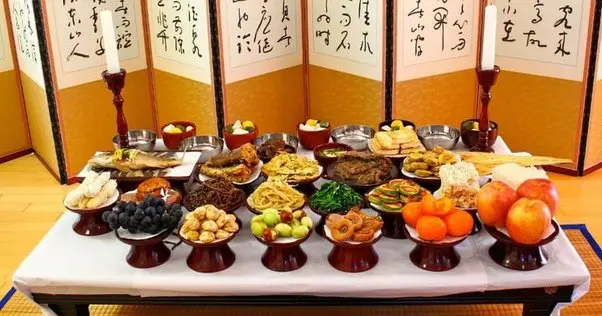
Pchum Ben (Cambodia)
Pchum Ben, also known as Ancestor’s Day, is a Cambodian Buddhist festival dedicated to deceased relatives. During the festival, people offer food to monks and make merit for their ancestors by visiting pagodas.
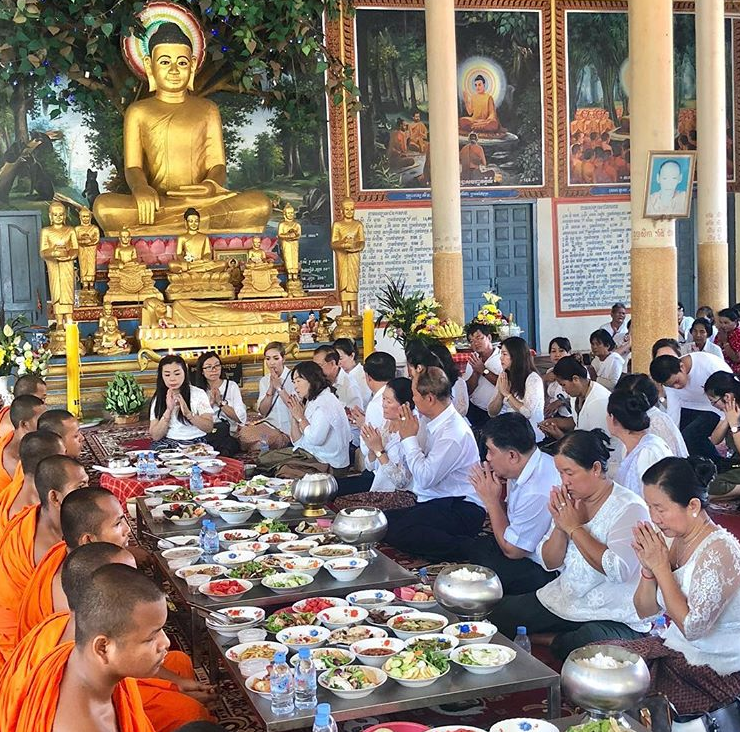
Awuru Odo Festival (Nigeria)
The Awuru Odo Festival is celebrated by the Igbo people in Nigeria to honor the departed. Families gather to remember their loved ones, perform rituals, and share meals.
These examples illustrate the universality of remembering and honoring the deceased, even if the specific customs and religious beliefs may vary.
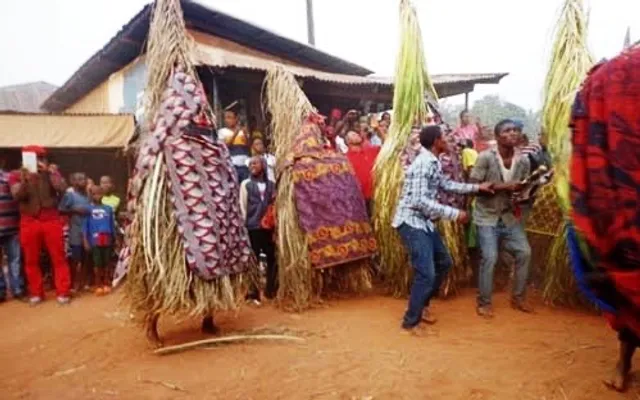
The Enduring Importance of Remembering the Departed on All Souls Day
The observance of All Souls’ Day and similar traditions serves several enduring purposes:
1. Connection Across Generations
Remembering the departed allows for a sense of continuity and connection across generations. It helps individuals maintain a link with their ancestors and loved ones who have passed away.
2. Emotional Healing
Grief and loss are natural aspects of human life. Honoring the deceased provides an outlet for emotional healing and helps individuals navigate the complex emotions associated with death.
3. Reflection on Mortality
All Souls’ Day prompts people to contemplate the impermanence of life and the importance of making the most of their time on Earth. It encourages individuals to consider their own mortality and the legacy they will leave behind.
4. Expressing Love and Gratitude
Honoring the deceased is an act of love and gratitude. It allows individuals to express their appreciation for the impact that the departed had on their lives and to continue the relationship in a spiritual and emotional sense.
5. Connection to Faith and Spirituality
For those with religious beliefs, remembering the departed is closely tied to their faith and spirituality. It reaffirms their belief in the afterlife and the power of prayer.
All Souls Day is a day of remembrance, reflection, and prayer for the departed. It is a solemn occasion when people of various Christian denominations and cultures come together to honor their loved ones who have passed away. The observance serves to provide comfort to those who are grieving, strengthen the sense of connection with the departed, and encourage a deeper appreciation for life’s impermanence.
While the specific customs and practices associated with All Souls Day may vary, the underlying message of love, remembrance, and hope for the departed remains universal. It is a testament to the enduring human need to cherish and remember those who have gone before us, ensuring that their memory lives on in our hearts and in the traditions that honor them. All Souls Day is a testament to the enduring human need to cherish and remember those who have gone before us, ensuring that their memory lives on in our hearts and in the traditions that honor them.

